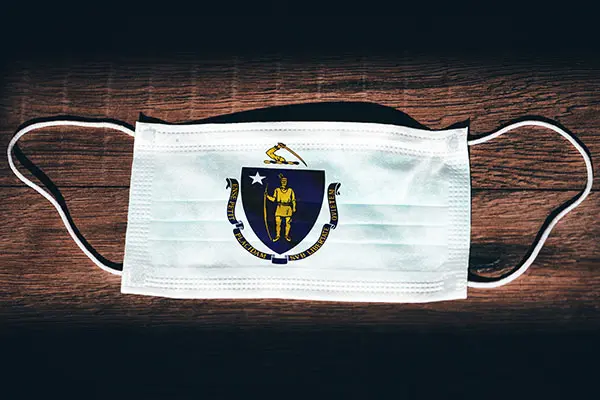Baker Popular, Trump Unpopular in Massachusetts in Wake of COVID-19 Pandemic

UMass Lowell Center for Public Opinion conducted a survey of 1,000 Massachusetts registered voters from April 27-May 1, 2020 about the state and federal government handling of the pandemic, issues surrounding job changes and behaviors, as well as attitudes toward the 2020 Massachusetts Senate Primary.
Key Findings
- In the wake of the current public pandemic, the poll of Massachusetts registered voters finds that state government, led by Gov. Charlie Baker, gets high marks (81%), while the federal government, led by President Donald Trump, gets low marks (32%).
- Four in 10 (39%) Massachusetts registered voters report knowing someone who has tested positive for COVID-19, while one in five (21%) report knowing someone who has died from COVID-19. Only 4 in 10 Massachusetts registered voters (13% high confidence, 27% moderate confidence) are confident that they could get a COVID-19 test if they wanted one.
- Asked about changes to work or employment, nearly one in four (23%) say they have lost their job since the start of the COVID-19 pandemic and 31% say their income has declined since the governor announced the closing of non-essential businesses.
- More than 80% of registered voters say they have increased/improved their handwashing, 69% say they have used more hand sanitizer, 63% say they have stocked up on food, 55% say they have conducted normal social activities via video chat, 51% say they have stocked up on personal sanitary products like toilet paper, 38% say they have purchased a mask, 32% have ordered grocery delivery, and 25% have learned a new skill at home.
- The survey included a subsample of 531 Democratic voters who are likely to vote in the September Democratic Senate primary that pits incumbent Sen. Ed Markey against challenger Rep. Joe Kennedy III. Kennedy has the support of 44% of likely voters and Markey has the support of 42% of likely voters while 10% are undecided and 4% say they are likely to support another candidate.
